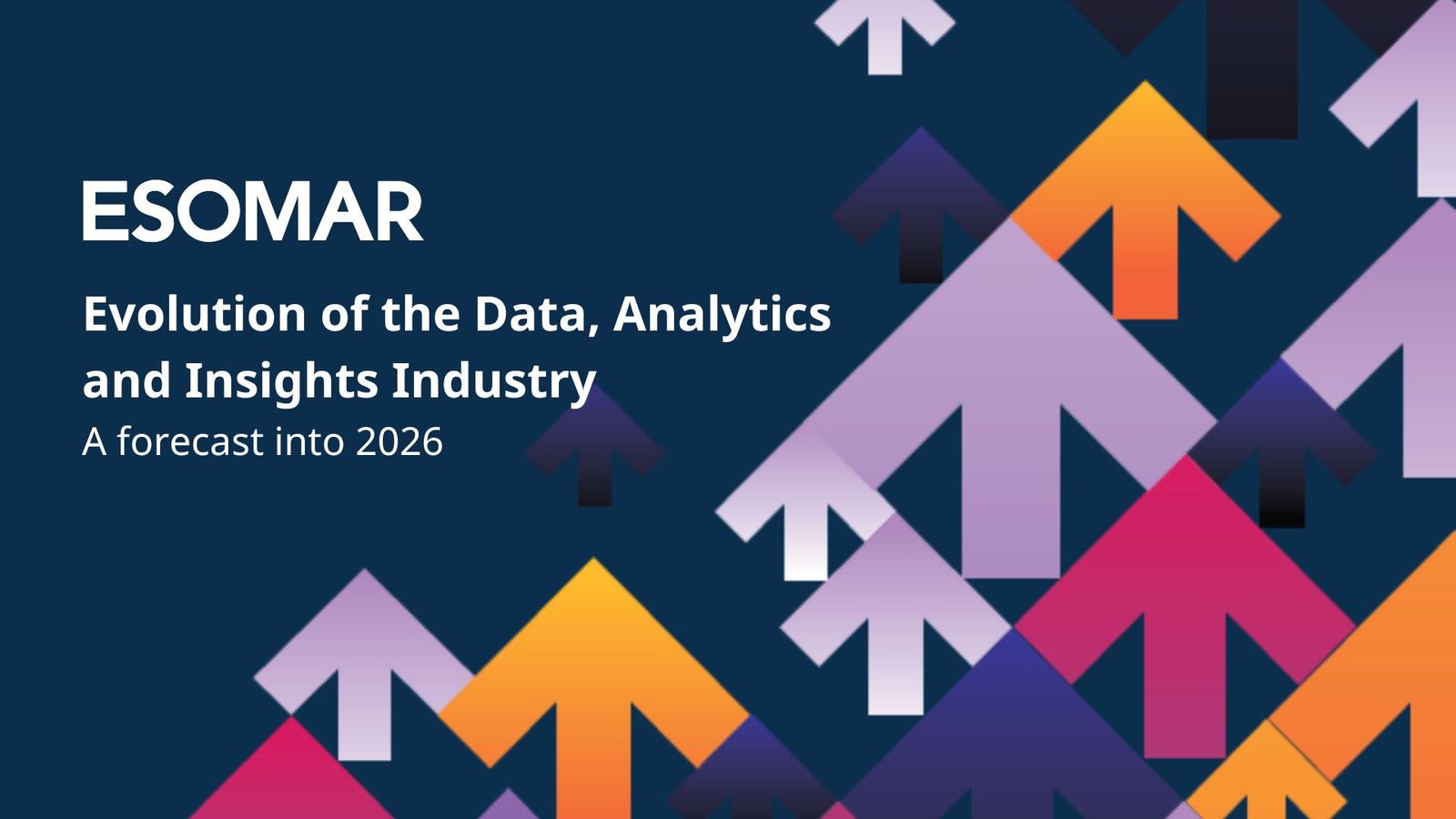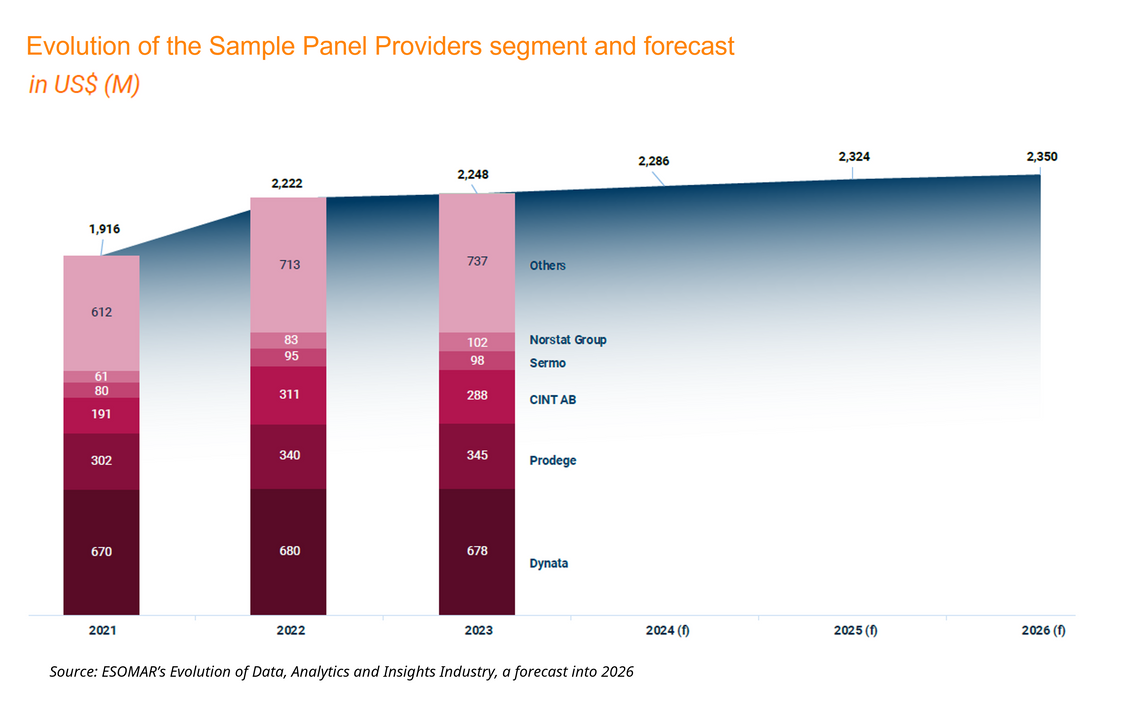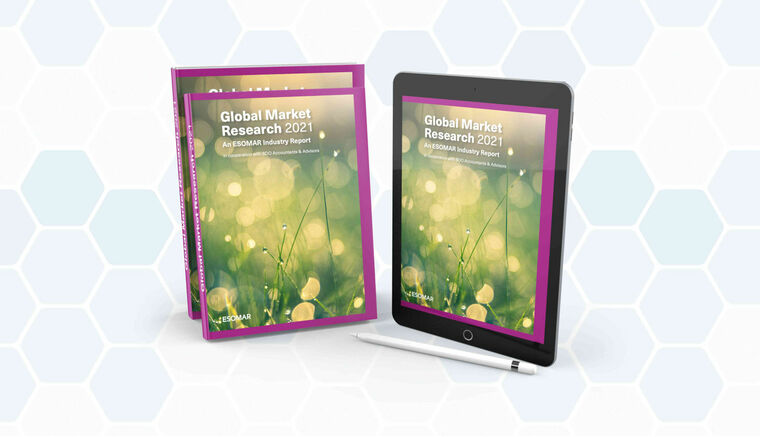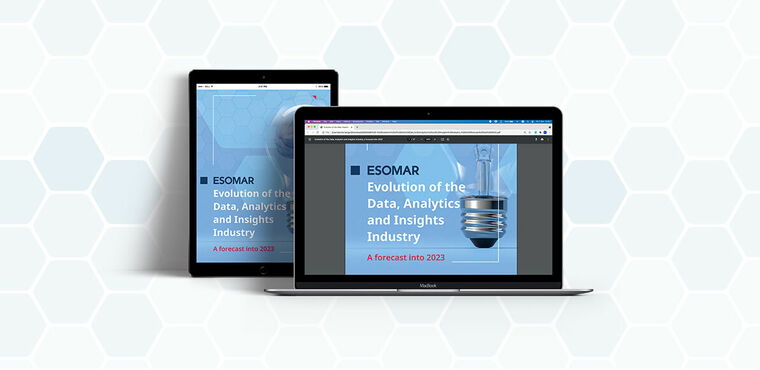Keeping up with the data quality challenges
An insider’s perspective on the impact of the issue on the Sample Panel Providers segment and the insights industry.

Article series
Evolution of the Data, Analytics and Insights Industry
- Does tech herald the end of research as we know it?
- Keeping up with the data quality challenges
- What are the roses and thorns in your path to embracing AI?
- Can self-serve research platforms and AI make everyone a researcher?
Are you seeking a comprehensive guide to shape your company’s strategy for the next three years? Look no further than ESOMAR’s Evolution of the Data, Analytics and Insights Industry, a forecast into 2026. This report offers not only qualitative insights but also data-driven projections to help you navigate the future of the insights industry. While we may not have a crystal ball, this report is the next best thing.
The following article is an excerpt from ESOMAR’s Evolution of the Data, Analytics and Insights Industry, a forecast into 2026.
The market research sector includes Sample Panel Providers and Established Market Research both of which have undergone many changes. We spoke to Enric Cid from Netquest to understand how the Sample Panel Providers segment has evolved over the years, and he explained as follows.
We have certainly witnessed evolutions in data collection methodologies over the past decade. Most notably, the increasing prevalence of two practices: combining multiple data sources and utilising traffic networks, also called "river sampling," as an alternative to online panels.
The adoption of "blending" was initially driven by the practical need to secure the most complex projects by aggregating two or more panels' capacities. However, as panels expanded, blending also came to address business imperatives of diversifying suppliers to reduce dependencies and risks. Today, blending stands as an accepted technique with potential methodological benefits.
Enric Cid
Of course, these new evolutions come with their own set of challenges, as he explains further.
However, fully capitalising on these advantages necessitates a deeper comprehension of how to appropriately integrate diverse sources based on respondents' motivations rather than solely business considerations — an area still requiring attention.
Similarly, the proliferation of traffic sources permitting one-time participant engagements has lessened the emphasis on cultivating long-standing value for respondents. This shift toward a more transactional or "gig economy" model of researcher-participant interactions concurrently heightens the need for stricter quality oversight.
Enric Cid
It must be noted that the Sample Panel Providers segment overcame a challenging year which was beset with issues around data quality, particularly linking to bots and online fraud. When enquired about the issue of data quality affecting the segment, he shared,
Traditionally, “quality” has been understood as the standardisation of results through established norms and procedures, as outlined in ISO 20252 for market, opinion, and social research. Additionally, it can encompass representativeness, which can be addressed through sampling techniques and the application of propensity weighting methods to account for known biases.
However, the current issue with data quality is rooted in a race to the bottom that prioritises "filling the top of the funnel" over the value placed on each individual's contribution. This approach translates to lower data reliability and a reliance on more and more checks to validate responses and the people providing them. As good respondents leave, the proportion of bad actors and fraud has increased, raising significant concerns.
Enric Cid

However, regarding development around the industry landscape, Enric highlights two non-technological areas that need monitoring.
Additionally, two non-technological themes also demand close monitoring. One is the regulatory landscape surrounding data and digital business, which has a geopolitical dimension, as the recent banning of TikTok in the US has shown. This landscape is constantly evolving, with voices on the fringes already questioning the concept of 'free consent' when it comes to sharing data and comparing big tech data scraping to a new form of colonialism. The other theme is the intensifying war for talent, especially for non-technical data literacy. This includes professional profiles that bring a more humanistic perspective, rooted in the philosophy of science and epistemology.
Enric Cid
A piece of advice that he shared during this interview resonated with me, and I am sure it will resonate with all my fellow market research practitioners.
[…] I urge all research practitioners to critically examine their data collection methodologies. Ask yourselves a fundamental question: would you, yourself, be genuinely interested in participating? If the answer is no, it's time to re-evaluate choices.
Enric Cid
Curious about expert perspectives on the threats facing the sample panel providers segment?
Download the report now to access the full article and explore the accompanying data.
Ajitha Lakshmi Gopalakrishnan
Junior Data Analyst at EsomarArticle series
Evolution of the Data, Analytics and Insights Industry
- Does tech herald the end of research as we know it?
- Keeping up with the data quality challenges
- What are the roses and thorns in your path to embracing AI?
- Can self-serve research platforms and AI make everyone a researcher?


